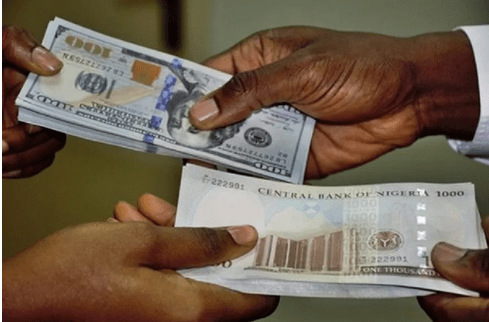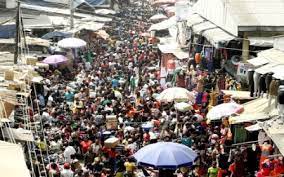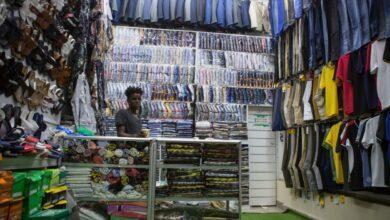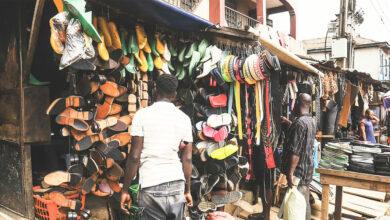
10 Factors Affecting Exchange Rate In Nigeria
Factors Affecting Exchange Rate In Nigeria – The exchange rate in Nigeria is the rate at which the Nigerian Naira (NGN) is exchanged for other currencies. It is determined by supply and demand in the foreign exchange market. The Central Bank of Nigeria (CBN) is responsible for managing the country’s exchange rate policy and maintaining stability in the foreign exchange market. Information Guide Nigeria
The exchange rate can be affected by many factors, including inflation, government policies, and global economic conditions. In recent years, the Nigerian government has implemented many measures to try to stabilize the exchange rate, including devaluing the currency and implementing foreign exchange controls. Despite these efforts, the exchange rate remains a significant concern for Nigeria’s economy and has been subject to fluctuations.
👉 Relocate to Canada Today!
Live, Study and Work in Canada. No Payment is Required! Hurry Now click here to Apply >> Immigrate to CanadaRead Also: 15 Factors Affecting Completion of Childhood Immunization in North West Nigeria
What is Exchange Rate?
An exchange rate is the value of one currency in terms of another currency. It is the rate at which one currency can be exchanged for another. For example, if the exchange rate between the US dollar and the Euro is 1.20, that means that 1 US dollar can be exchanged for 1.20 Euros. Exchange rates can fluctuate due to various economic factors, such as interest rates, inflation, and political events. Factors Affecting Exchange Rate
Types of Exchange Rates in Nigeria
There are several types of exchange rates in Nigeria, including:
- Official Exchange Rate: This is the rate at which the Central Bank of Nigeria (CBN) sells foreign currency to authorized dealers, such as commercial banks. It is also known as the interbank rate and is used as a benchmark for other exchange rates in the country.
- Parallel Market Rate: This is the rate at which foreign currency is traded on the black market. It is also known as the “black market rate” and is typically higher than the official exchange rate due to the scarcity of foreign currency in the country. NYSC Portal
- Bureau de change Rate: This is the rate at which foreign currency is sold by Bureau de change operators. It is typically higher than the official exchange rate but lower than the parallel market rate.
- Retail Exchange Rate: This is the rate at which foreign currency is sold to the general public by commercial banks. It is typically higher than the official exchange rate, but lower than the parallel market rate and bureau de change rate.
- Interbank Foreign Exchange Trading: This is the rate at which authorized dealers such as commercial banks buy and sell foreign currency to one another. It is typically similar to the official exchange rate
Read Also: 10 Factors Affecting Gender Equality in Nigeria
Advantages of Exchange Rate in Nigeria
Some advantages of an exchange rate in Nigeria include:JAMB Portal
- Facilitation of Trade: A flexible exchange rate system in Nigeria allows for the efficient allocation of resources through international trade. This is because a floating exchange rate can adjust to changes in demand and supply conditions, making exports cheaper and imports more expensive, thus promoting exports and reducing imports.JAMB Result
- Attraction of Foreign Investment: A stable exchange rate in Nigeria can attract foreign investment as it reduces the risk of currency fluctuations for investors.
- Economic Stability: A flexible exchange rate can help stabilize the economy by absorbing external shocks, such as changes in oil prices or global economic conditions.
- Flexibility in Monetary Policy: A flexible exchange rate gives the Central Bank of Nigeria more flexibility in conducting monetary policy. This is because the central bank can focus on domestic inflation and interest rates, without having to worry about defending a fixed exchange rate.10 Best University In Nigeria For Marine Engineering
- Improved Allocation of Resources: A flexible exchange rate allows for a more efficient allocation of resources within the economy as it promotes exports, reduces imports, and attracts foreign investment.
- Price Discovery: A fluctuating exchange rate helps to discover the true relative prices of goods and services in the domestic economy and other countries.
Read Also: 10 Factors Affecting Industries In Nigeria
Exchange Rate and the Nigerian Society
The Nigerian currency, the naira, has had a volatile exchange rate history. The country has a long history of currency devaluation and mismanagement, which has led to a lack of confidence in the naira and high inflation. The naira was initially pegged to the British pound and later to a basket of currencies. In the 1980s, the Central Bank of Nigeria (CBN) began to devalue the naira to promote exports, but this led to a rapid increase in inflation. In the 1990s, the CBN pegged the naira to the US dollar, but this policy was abandoned in the early 2000s due to a shortage of dollars. 5 Best Universities in Nigeria For Medical Laboratory Science
In recent years, the CBN has implemented several measures to stabilize the exchange rate, including devaluing the naira, increasing interest rates, and implementing a flexible exchange rate regime. However, these efforts have been hindered by many factors, including a lack of foreign exchange reserves, declining oil prices, and a lack of structural reforms. As a result, the naira has remained highly devalued, with a parallel market rate that is often much higher than the official rate.
👉 Relocate to Canada Today!
Live, Study and Work in Canada. No Payment is Required! Hurry Now click here to Apply >> Immigrate to CanadaRead Also: 10 Factors Affecting Girl-Child Education in Nigeria
10 Factors affecting Exchange Rate in Nigeria
Several factors can affect the exchange rate in Nigeria, including:
- Inflation: High inflation rates in a country lead to a decrease in the value of its currency as it becomes less attractive to foreign investors.
- Interest Rates: Higher interest rates in a country attracts foreign investors, leading to an increase in demand for the country’s currency.200 romantic love message for her
- Political Stability: Political instability in a country leads to uncertainty and discourages foreign investment, causing the value of the currency to decrease.
- Economic Growth: Strong economic growth in a country leads to an increase in demand for its goods and services, which can lead to an increase in the value of its currency.
- Balance of Payments: A country with a strong balance of payments is more likely to have a stable exchange rate, as it can meet its financial obligations to foreign countries.
- International Trade: A country that exports more than it imports will generally have a stronger currency as it is receiving more foreign currency than it is spending.
- Foreign Reserves: A country with a large number of foreign reserves is better able to defend its currency against speculative attacks and maintain a stable exchange rate.
- Speculation: Exchange rates can be affected by speculation, which is the buying and selling of currency in the hopes of making a profit. 105 good morning messages
- Government Intervention: Governments can intervene in the foreign exchange market to try to influence the value of their currency.
- Natural Disasters or Pandemics: This leads to a fall in the exchange rate of the country. Also, it leads to a fall in economic activities and a decrease in the demand for the country’s goods and services
Read Also: 10 Factors Affecting Immunization Coverage in Nigeria
Conclusion
The exchange rate in Nigeria is determined by a variety of factors including economic conditions, government policies, and global market forces. The Nigerian naira has historically been subject to significant volatility, with fluctuations in the exchange rate affecting the cost of imported goods and the competitiveness of Nigerian exports. Despite this, Nigeria’s economy has remained relatively stable, with the government and central bank taking measures to stabilize the currency and support economic growth. Overall, the exchange rate in Nigeria is an important consideration for businesses operating in the country and for those looking to invest in the Nigerian economy.
Check JAMB RESULT
Check and Confirm: How much is Dollar to Naira








